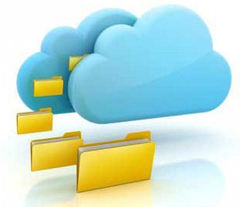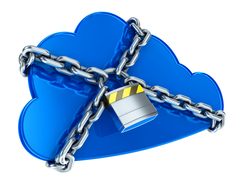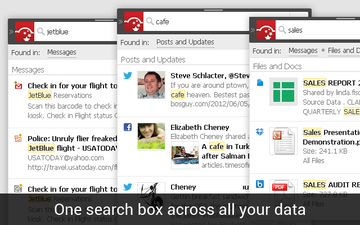A Cloud Guide: The Benefits Of Cloud Computing

The acceleration of cloud computing has brought a variety of changes to many different industries. There are concerns of course, as many large companies and enterprises are hesitant to give up paper and move their company into the digital realm. Often, this hesitation concerns money or security and sometimes it's just the thought of such a big change in the way a company performs its business. Others worry about the impact of cloud computing on the IT department. However, these concerns have been largely overblown. The benefits of cloud computing are too big to ignore and we are going to look at some of the top benefits of cloud computing.
Cloud computing saves time and money

One of the many misconceptions that people have about the cloud is that it will cost more time and money to transfer all files and documents to the cloud. Moving documents to the cloud is a fast process. Any files and documents that are already in digital format can simply be uploaded to the cloud storage account. To transfer paper files to the cloud simply consists of scanning paper documents to a computer file and then uploading them to the cloud storage account.
It saves money as the company will require a smaller IT staff and small businesses may actually only need an IT consultant they can call when needed. It will vastly lessen the costs of buying new hardware, upgrading hardware, maintaining hardware and purchasing additional storage space. It saves on physical storage space as all files will be stored in the cloud. No bulky file cabinets or storage rooms are needed. All upgrades and maintenance are performed by the cloud storage provider. Paper and printing costs will be eliminated or vastly reduced.
It saves money as the company will require a smaller IT staff and small businesses may actually only need an IT consultant they can call when needed. It will vastly lessen the costs of buying new hardware, upgrading hardware, maintaining hardware and purchasing additional storage space. It saves on physical storage space as all files will be stored in the cloud. No bulky file cabinets or storage rooms are needed. All upgrades and maintenance are performed by the cloud storage provider. Paper and printing costs will be eliminated or vastly reduced.
Cloud computing brings efficiency with BYOD

Cloud computing has brought us the BYOD (Bring Your Own Device) movement. With BYOD, companies allow their employees to perform company work and access company files on their personal devices, such as smartphones and tablets. One of the main benefits of BYOD is that many employees can work remotely and no longer need to make costly and time-consuming trips to and from the office every day. While security has been a concern in this movement, IT departments have implemented monitoring software in the personal devices to ensure that company data is not being abused. However, users are not particularly fond of this intrusion as their personal text messages and photos could possibly be read during the monitoring process. To combat this, many employees have begun carrying two phones, one for personal and one for work. However, this is not very efficient or cost-effective.
Because of the BYOD movement, Samsung implemented Knox Security into the Samsung S4, a trend that's sure to take off among other phone manufacturers. This added security feature enables the phone to be split into two separate sections- one for personal use and one for business use. This means that all company data remains secured in the business section while personal SMS messages, photos and other data remains free from the IT department's security monitoring.
Because of the BYOD movement, Samsung implemented Knox Security into the Samsung S4, a trend that's sure to take off among other phone manufacturers. This added security feature enables the phone to be split into two separate sections- one for personal use and one for business use. This means that all company data remains secured in the business section while personal SMS messages, photos and other data remains free from the IT department's security monitoring.
Cloud Computing offers easier sharing and searching

Sharing files is made simple with cloud computing as files can be shared among multiple users by simply dragging and dropping files or documents into a shared folder. Once a file is dropped into a shared folder, it is then uploaded to the cloud storage provider's servers and sent out to all users that have the shared folder installed on their computer or device.
Cloud computing makes searching for files and folders a quick and simple process. Forget searching through huge storerooms with thousands of folders, all files within a cloud storage account can be searched within seconds. There are even apps such as CloudMagic that allow users to search across many different cloud services. This works well if your company is using multiple cloud storage providers such as Google Drive, SkyDrive, Dropbox and more.
Cloud computing makes searching for files and folders a quick and simple process. Forget searching through huge storerooms with thousands of folders, all files within a cloud storage account can be searched within seconds. There are even apps such as CloudMagic that allow users to search across many different cloud services. This works well if your company is using multiple cloud storage providers such as Google Drive, SkyDrive, Dropbox and more.
Cloud computing provides stronger security

This is one of the largest misconceptions about the cloud. Many people feel that the cloud does not offer adequate security of company data. With the strong security features that cloud storage providers offer, the strength of cloud security is up to the user. Strong passwords and the use of additional security measures such as two-factor authentication help keep data secure. All competent cloud storage providers use strong encryption during transfer and storage of data. Cloud security has become advanced enough that the U.S. Defense Department is moving to the cloud.
Cloud computing offers complete security from natural disasters such as fire, flood, hurricanes, tornadoes, etc. If a company's physical location is destroyed by a natural disaster, all company files and folders remain intact, safely stored away in cloud servers. And if you’re worried about the cloud storage servers getting hit by a natural disaster, there are cloud storage backup services such as cloudHQ, which provides a continuous backup of all data. It can even sync files across a variety of cloud storage providers.
Cloud computing offers complete security from natural disasters such as fire, flood, hurricanes, tornadoes, etc. If a company's physical location is destroyed by a natural disaster, all company files and folders remain intact, safely stored away in cloud servers. And if you’re worried about the cloud storage servers getting hit by a natural disaster, there are cloud storage backup services such as cloudHQ, which provides a continuous backup of all data. It can even sync files across a variety of cloud storage providers.
The cloud is here to stay
Increasing cloud and mobile trends are showing us that cloud computing is not going away. Mobile use is expected to overtake desktop computer use within the next year or so. The benefits of cloud computing include cost-reduction, time-management, easier and more efficient business performance and productivity, and better security. With benefits such as these, the cloud has already become too big to ignore.
Related articles
- Is Cloud Computing Right for Your Small Business? (staples.com)
- Cloud Computing Pros and Cons (techneckhc.wordpress.com)
- Top 10 Cloud Computing Questions & Answers (staples.com)
- Advances of Cloud Computing in Business Development (cloud.dzone.com)
- Cloud computing modernizes education in China (zdnet.com)
- More small businesses are adopting cloud computing in Ireland - Microsoft/Amárach Cloud Index (siliconrepublic.com)
- What is cloud computing? (tankjustin.wordpress.com)
- A Cloud of Suspicion: Legal Issues Surrounding Cloud Computing (nclawlife.com)
- The aaS in Cloud Computing (hobbycollegecareer.wordpress.com)
- How Cloud Computing Has Empowered The End User (datacenterknowledge.com)




 RSS Feed
RSS Feed
